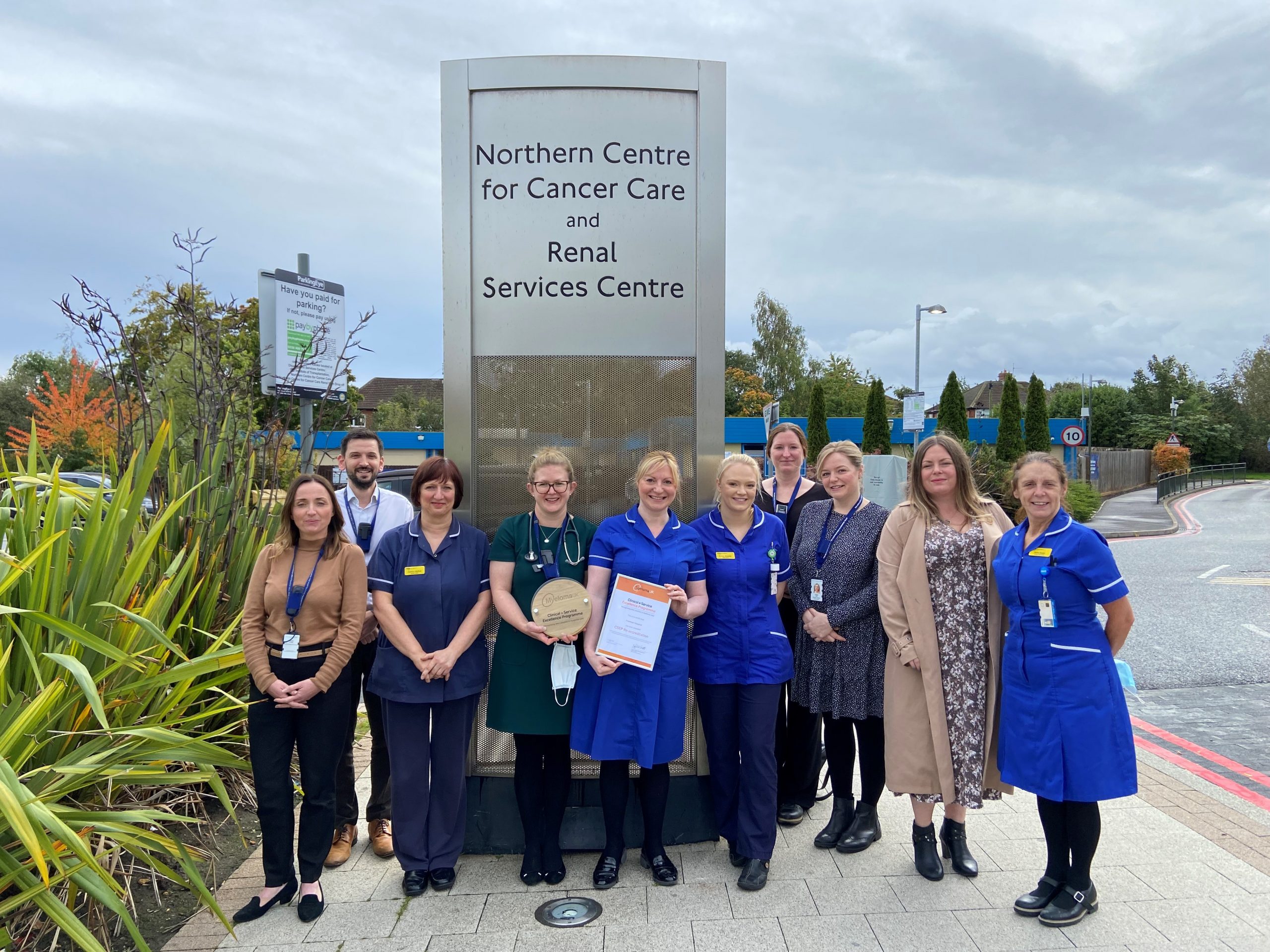Helen Pye, Cheryl Bell and Holly Hawthorn, all Haematology and Haemophilia Social Workers at the Northern Centre for Cancer Care, explain the support they provide for patients after one year in their roles. They are the only adult social work team for haematology and haemophilia patients in the UK and would be delighted to speak to any other allied health professionals working in a similar role.

Could you describe the role of a haematology and haemophilia social worker?
The pandemic was very influential in shaping our role and defining priorities, as is the ongoing cost of living crisis. The cost of living crisis means patients are being more financially affected by diagnosis. A huge part of our role has become securing financial support, including ensuring patients receive the right benefits or applying for grants from local authorities and charities. These grants can be used for broken home appliances, travel to and from hospital appointments, or childcare. Financial aid is needed by so many patients and is often our way in to providing more holistic support. Patients can also access support from the Macmillan Cancer Support welfare rights team in the Freeman Hospital, the benefits advisor at Maggie’s Newcastle, and the local authority welfare rights team.
Advocating on patients’ behalf is a key part of our role, particularly around housing and employment. Employers are not always supportive; patients are pressured to return, and processes are not followed. Many people do not understand haematological conditions and the impact of a diagnosis. We do also deal with some safeguarding concerns.
Patients have a multitude of support needs, and our role is often to be the non-medical part of the multidisciplinary team. Our role can be advocating on a patient’s behalf with our clinical colleagues. We are more likely to be aware of complexities that will prevent a certain treatment plan from working (such as caring responsibilities). We can speak for patients if they are not comfortable, so that plans can be altered when needed.
Alongside our myeloma specialist nurse colleagues, we facilitate peer support through the Newcastle Myeloma Support Group. The group is an informal way to meet with patients, but we are available should any relevant support needs arise. Haematology patients have the mental and emotional burden of wondering about the outcome of treatment and prognosis of condition; the benefit of peer support to this cohort is clear.
Whilst the above is an attempt at a summary, we have an extremely broad remit which can be difficult to condense. We will do whatever is needed to support patients. Different patients have completely different needs, so our work is always very personalised.
How does the presence of a haematology and haemophilia social work team benefit patients and families/carers?
We provide support to the patient’s wider family, including partners, parents and children. Once we start supporting a patient, we will get to know their wider support network. We can refer into carer support services and do carer’s assessments. If the patient is the carer, we can arrange care for their dependent(s) whilst they are an inpatient.
As patients approach end-of-life, we can ensure everything is in place. This can include practical support like social care packages as well as linking families to charities who can arrange experiences focused on making memories.
How does the team’s presence benefit healthcare professional colleagues?
We approach patient care from a different angle to the medical model, which can be focused on treatment. We have a different knowledge background and set of professional values to the clinical team and are aware of what other systems the patient is operating within beyond the hospital. If a patient misses an appointment, we can help colleagues understand why that might be; nothing happens in a vacuum. Our nursing colleagues do not have the capacity to spend as much time as they would like with patients and so are not always aware of everything going on in their lives. Our presence provides a collaborative way of working with the patient and their family. We also have a very close link to the palliative care team who will flag patients needing extra support.
What advice would you have for anyone new to the role?
Take time to find out what support resources are available and build networks and contacts with local authorities and charities. Knowing where to go for support, where the borders are between localities, and how different local authorities work is key. We all worked with services in Newcastle previously, but our current role covers the whole of the North East. Building up this knowledge and links takes time, but we have built a rapport with key contacts who now ask us for advice.





